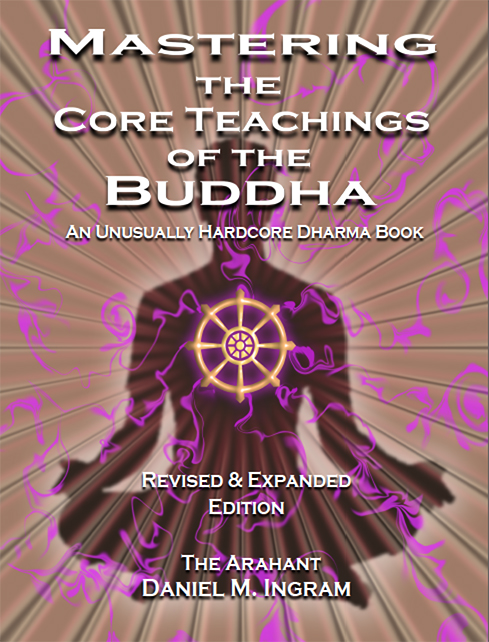The God Models
← The No-Thought Models | The Unity Models →
On a very different tangent, we have the God models. While Buddhism pretends to be an exception to the theological traditions, many Buddhists across the globe essentially worship the Buddha as God just as Christians worship Jesus as God. Further, the majority of the meditative and mystical traditions that promote awakening involve some sort of theological background or underpinning, including Hindu Vedanta’s focus on the divine nature of things, Sufism’s focusing on The Friend or dissolving in Allah, and Christianity’s various dissolution in God metaphors, such as the “divine marriage” and “no will but Thine”. Buddhism has the same idea at times with the phrase “Buddha Nature”. The Tantric Buddhists visualize deities all the time and equate them with various aspects of ultimate reality as skillful means, but this often degenerates into ritual worship and granting ultimate status to these deities.
These are interesting models to talk about, and basically the question comes down to the distance between “God” (or “gods”, or whatever) and our life. Those who believe in a God that is a separate entity are already in trouble. Those who believe this entity is far off in Heaven or largely unavailable are really in trouble. However, those who believe in a “God” that is right here, right now, and present in all things, including themselves, have a fighting chance, and this is as practical a model for awakening as any other, if done correctly, which it almost never is. I generally have a pretty good time talking with the awakened Christian mystics I know and, as long as I am willing to use God-language, which I am, we typically have a great time sharing the interesting aspects of the path.
The problem comes for those who believe in “God-free zones”, that is, those places where God is not. These tend to be people who believe in a limited, abstract God. Most people who believe in God have not taken the time to consider the question of whether they believe in God-free zones or a limited God. In fact, most people who believe in God in the monotheistic sense would be offended by the notion that their God was somehow limited. However, if you question them about whether God is in their toilet paper or in a rock, or perhaps is the toilet paper or the rock, is their weird popcorn fetish, is the annoying itch in their armpit, and is everything else, even most people who in theory believe in an omnipresent, unlimited, all-powerful God will simply not go that far. This is too bad, because if they did, they would have a good working model for realizing that this is it, and so we are back to my original, simple, excellent premise and test for good models of awakening.
Here’s how this works: if you believe that you are trying to see God, and you believe that all creation is a manifestation not just created by God, but in fact is God, then you are back to basic insight practices: seeing the sensate world exactly as it is, because there you will find ultimate reality, or “God”, if you want to call it that. When the centerpoint is seen through by your careful investigation of all these sensations, or all the aspects of God, then all that is left is just these sensations as before, that is, all this God. Thus, if we are willing to believe in an omnipresent God, then by truly, deeply, directly perceiving all sensations to be just part of the causal, natural unfolding of what they label God, all the boundaries between self and other can be seen through, and the phenomenal world is left doing its divine thing, thus the practitioner realizes they always were part of God, in a sense, and there is no will but God’s, and all knowledge is God, though these designations are merely terminological one way or the other.
Thus, the problem with God models is that people don’t take them far enough—because if they did, they’d be able to get into something great, though they could get there just as easily without them. Some people really resonate well with God-based traditions. Some thrive in tantric models where they visualize themselves as actual deities. Some are very inspired by a sense of immediate divine presence or the notion of dissolving into God. Both motivations and modes of practice and conception of practice can yield great results in some meditators. I myself attained stream entry in a vision that involved God and a gerbil while doing Buddhist practices, as I will describe later.
However, all the other ideals that are involved in becoming God or seeing God are just more odd dreams and possible side effects of spiritual practice. I have a few friends who saw visions while on LSD in which “God” told them useful stuff, and this is fine. A few friends have gotten some great mileage and powerful, positive inspiration out of other spiritual experiences that had some specific divinity in them, but this is back in the realm of the powers and has nothing to do with awakening and only a very limited amount to do with “God” in the ultimate sense.

